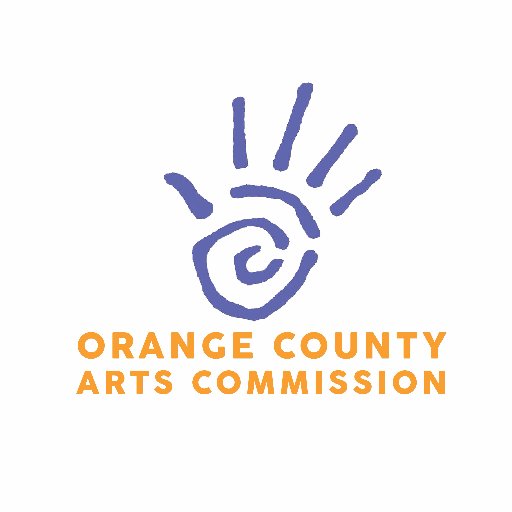By Arshia Simkin via the Orange County Arts Commission
Fatwood is an exciting new collaborative workspace for the media arts, located in the rural buffer between Chapel Hill and Carrboro. The property—which opened in December 2021—features two buildings with five light-filled studio spaces available for artists to rent; however, the response has been strong and currently all spaces are taken. The buildings, which are surrounded by sprawling lawns and trees, are meant to feel “peaceful and quiet” and evoke a “camp-like” feel, said founder Christopher Allen. The property is “in a unique location that feels rural but is also super close to downtown Carrboro,” he added.
The unique name—fatwood—comes from a type of kindling made from the heartwood of pine trees and is commonly used in the South. Symbolically, Allen says that Fatwood is “looking to be a place that can take a spark and turn into something that is lasting.”
Allen is also the founder and Executive Artistic Director of UnionDocs, a non-profit center for documentary art, based in Brooklyn. He credits his experience at UnionDocs—building the organization from a “grassroots, scrappy DIY institution to something that has many different programs and an amazing core team of people working together”—and his close ties to Orange County as two of the primary inspirations for founding Fatwood. Allen has twenty years of experience at UnionDocs, where, in addition to managing, he has directed, co-written, and produced works, such as the New York Times Critic’s Pick, “Say Something Bunny.”
Allen’s connection to North Carolina is lifelong: he went to high school in Chapel Hill, spent time at The ArtsCenter, and his parents still live in Chapel Hill. Allen also sees Orange County as a “particularly fertile space because of the intellectual, artistic, and activist community in the area.” Fatwood has not only required Allen’s artistic and organizational skills—he’s also spent time fixing up the studio spaces with his father, and said he’s lucky to have had experience as a carpenter’s assistant in Chapel Hill after high school and in Brooklyn where he renovated the 1889 building that houses UnionDocs.
Among Fatwood’s inaugural group of artists is AJ Williams, a local Durhamite filmmaker and musician, who, Allen said, is working on a “really exciting live cinema project” and with whom Allen connected via UnionDocs, where Williams was part of a remote lab called “Carceral Screens and the Abolitionist Imagination.”
Through UnionDocs, Allen has also forged connections with local institutions and events, such as Full Frame Documentary Film Festival and the Center for Documentary Studies at Duke University: “What we are planning and offering can be a nice complement to bolster that community,” Allen said.
On Fatwood’s website, Allen highlights the importance of both local and international collaboration: “the mission of Fatwood is to support multi-disciplinary co-creation, craft and community on the local level, while inviting international inspiration and input.” This is also the ethos of UnionDocs, which seeks to cultivate a hyper-local focus on the Southside of Williamsburg—also known as Los Sures—a long standing Puerto Rican community, where UnionDocs is located: “we’ve done a lot of work with that community and in creating documentary projects about the neighborhood” including the critically acclaimed Living Los Sures, Allen said. “We’ve also had increasingly international community of artists that come to take part in our programs. The exchange that’s possible with [the combination of] people with a long-term investment in a place and people from outside who have new ideas and experiences can be wonderful,” Allen said. At Fatwood, Allen is looking forward to “building workshops and labs that bring in artists from both around the country and also abroad to share their ideas and their work.”
In addition to increased programming, Allen has plans to expand the physical space, including adding a patio and by using common spaces to host receptions, small gatherings, workshops, and labs. Currently, Fatwood also has an “audio isolation container,” which was originally made for an HBO project that didn’t go forward, that can be used by members for voice-over work or podcasting.
Fatwood will host a kickoff event in early March; they’ll also be hosting filmmaker Roger Beebe, who formerly ran Flicker, a festival of small-gauge film in Chapel Hill from 1997 to 2000. Allen, who also has plans to collaborate with Cosmic Rays—a local experimental Chapel Hill film festival—is looking forward to all the ways in which Fatwood can foster community and the media arts in Orange County.
You can learn more about Fatwood at the website https://fatwood.studio; joining the mailing list; or following them on Instagram at https://www.instagram.com/fatwood.nc
 Chapelboro.com has partnered with the Orange County Arts Commission to bring more arts-focused content to our readers through columns written by local people about some of the fantastic things happening in our local arts scene! Since 1985, the OCAC has worked to to promote and strengthen the artistic and cultural development of Orange County, North Carolina.
Chapelboro.com has partnered with the Orange County Arts Commission to bring more arts-focused content to our readers through columns written by local people about some of the fantastic things happening in our local arts scene! Since 1985, the OCAC has worked to to promote and strengthen the artistic and cultural development of Orange County, North Carolina.






